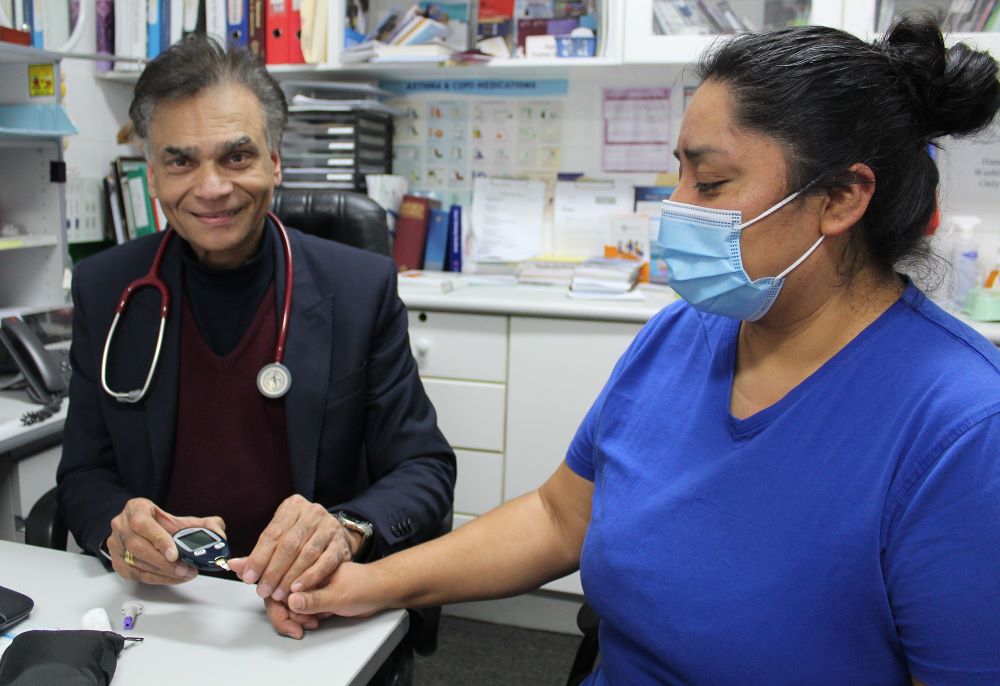
A program which gives people with type 2 diabetes access to a specialist team working with their regular GP is now available to people in South Western Sydney.
South Western Sydney Primary Health Network (SWSPHN) and South Western Sydney Local Health District (SWSLHD) have partnered to deliver diabetes clinic days at general practices for type 2 diabetes patients.
The clinics aim to enhance care for diabetes patients, improving their health and decreasing hospital admissions.
Dr Vipin Goyal, from Liverpool Medical Centre, pictured above with a patient, said his practice had offered two clinics since February.
“The patients had a good experience. They felt like someone was caring for them and was interested in their health,” Dr Goyal said. “They are also happy there will be a follow-up review.”
Dr Goyal emphasised the value of the clinics to patients in terms of improving their health, but also financially because clinics were free to patients.
Diabetes is a chronic condition which affects the whole body. It occurs when the body can’t maintain healthy levels of glucose in the blood. Glucose is a form of sugar. It is the main source of energy for our bodies. Unhealthy levels of glucose in the blood can lead to health complications.
There are three main types of diabetes: type 1 diabetes, type 2 diabetes and gestational diabetes.
According the South Western Sydney Diabetes Framework to 2026:
66,740 people living in South Western Sydney are known to have diabetes (6.9 per cent of the population);
16.9 per cent of all women have pre-existing diabetes or gestational diabetes during their pregnancy;
By 2025, there will be up to 122,000 people in South Western Sydney living with diabetes and by 2031, up to 151,000.
According to Diabetes Australia, type 2 diabetes is increasing at the fastest rate, accounting for more than 86 per cent of diabetes cases in Australia.
Lifestyle modification interventions can delay or prevent type 2 diabetes.
SWSPHN chief executive officer Keith McDonald says the diabetes case conference clinic days are “efficient and innovative”.
“Patients don’t have the issues of cost, travel, parking and long wait times to get in to see a specialist,” he said.
“It’s also an opportunity for them to have personalised education and treatment from a diabetes educator.”
GPs also benefit from upskilling to better manage their type 2 diabetes patients.
Currently, two diabetes clinics are held weekly across South Western Sydney.
To date, 14 practices have held 20 clinics, with 38 clinics already scheduled for the remainder of 2023 across 30 practices.
Dr McDonald said there was a massive demand for the service.
“We’re expecting that 500 consults will be held this year,” he said.
In a survey of patients who have used the service, 79.2 per cent of respondents said the appointments were very helpful.
One patient said of the clinic: “Very helpful. Excellent to have it all arranged for me.”
Another said: “I was satisfied with how it went. I feel like I am able to manage health decisions better.”
